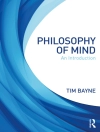Few would dispute that the well-being of individuals is one of the most desirable aims of human actions. However, approaches on how to define, measure, evaluate, and promote well-being differ widely. The conventional economic approach takes income (or the power to acquire market goods) as the most important indicator for well-being, and the utility function as the formal device for positive and normative analysis. However, this approach to well-being has been questioned for being seriously limited and other approaches have arisen. The capability approach to well-being, which has been developed during the last two decades by Amartya Sen and Martha Nussbaum, and the Happiness Approach to well-being, championed by Richard Easterlin, both provide an alternative. Both approaches come from different traditions and have developed independently, but nevertheless aim to overcome the rigid boundaries of the conventional economic approach to well-being. Given these common aims, it is surprising that little comparative work has been undertaken across these approaches. This book aims to correct this by providing the reader with contributions from leading names associated with both approaches, as well as contributions which evaluate the approaches and contrast one with the other.
Luigino Bruni & Flavio Comim
Capabilities and Happiness [PDF ebook]
Capabilities and Happiness [PDF ebook]
Придбайте цю електронну книгу та отримайте ще 1 БЕЗКОШТОВНО!
Мова Англійська ● Формат PDF ● ISBN 9780191559716 ● Редактор Luigino Bruni & Flavio Comim ● Видавець OUP Oxford ● Опубліковано 2008 ● Завантажувані 6 разів ● Валюта EUR ● Посвідчення особи 2274178 ● Захист від копіювання Adobe DRM
Потрібен читач електронних книг, що підтримує DRM












